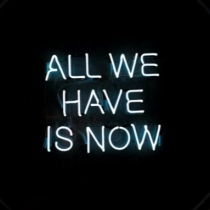The type of journaling that is most beneficial to you really depends on you and what you are trying to get out of journaling, and the reason you are journaling.
One popular type of journaling that can have many benefits is gratitude journaling, it's also one of the simplest to do. At the very least, all you need to do is to write down a few things that you are grateful for. This alone can help you better put things into perspective, especially if thinking about things you are grateful for is a difficult task, this can really help improve that.
This, of course, can be built upon. You can start by writing down just a few things that you are grateful for, and then you can also write down the reasons why you are grateful for them. As you progress, you may notice that you are able to find more things that you are grateful for, and that finding these things gets easier and easier. This can have a positive impact on your life, causing you to have a more positive attitude and a better understanding towards life, people, and yourself.
There are a few things that are best to avoid when journaling. It's not that they are necessarily wrong per se, but, they could impact your journaling practice and the effectiveness of it.
One important thing to avoid is to not judge yourself and what you are writing. Journaling is a safe space for you to write down what ever you feel you need to write down. This could be your thoughts, emotions, feelings, things that have happened that day, things you want to have happened, or anything else. It's a place for you to vent, to clarify and understand yourself, and to go on a journey of self discovery.
Another important thing is to keep it simple. Don't try to have perfect grammar, it's not the point of journaling. Don't try to copy someone else's style or write in certain styles other than your own, just be yourself. And don't try to fill out a whole page or multiple ones every time you journal, just write as much as you feel you need to, even if it's just one sentence.
Here is a longer article I wrote on this site's blog that covers more things to avoid and things that can help your journaling practice: The Essential Guide To Journaling: Dos, Don'ts, And Tips For Success
ADHD can make it difficult for people to navigate through their thoughts and emotions. Journaling can help slow things down for them and allow them to focus better on these things.
Journaling causes your mind to slow down, which can allow you to catch up with it and actually understand what you are going through, what you are feeling, and what is on your mind. It also allows you to better focus on a single item, whether you are writing about an event that happened, a feeling or emotion, or a thought you are trying to explore.
It is important, though, to understand that journaling may take time to get better at. For some it may come more naturally, for others, especially those who are not used to writing things down, it could be a little bit more difficult to start the practice. The key is to keep at it and to not get frustrated or impatient if it doesn't work out right away.
Journaling is not a spiritual practice in itself, but it is used by people who are on a spiritual journey. Journaling is used by many all over the world, regardless of their spirituality, religion, age, or gender.
I have met many spiritual people who use journaling as a tool for clarity and for understanding themselves along their path.
The path people are on is not always straight forward or easy. People lose sight of their path and lose clarity about where their path is leading to. They discover many difficulties and struggles along the way.
They use journaling as a tool to correct themselves when needed, to understand if their ways were true to who they are or not. They use journaling to understand themselves and who they are better, and to keep learning about themselves as they go down their path and evolve.
What do you feel you need to write down? For me, I always feel that it's not necessarily about what I should write down as much as it is what I should not write down, or not focus on.
There are basic things I like to keep in mind about journaling, such as, it's not a diary. It is not something that I must do every day. It is also not a place for me to write down everything that has happened that day.
Journaling for me is the place I go to understand myself better. To make the things that are foggy and unclear in my mind, clear. For the most part, it works.
Of course, it's not a magical solution to my problems or what ever I am facing or feeling. But it is one of the best outlets. It's a place where I can just write down what ever I am feeling, with no judgment, and no worries about how it may sound.
Another important thing to not focus on is your spelling, grammar, and how what you are writing down sounds. Those things are not important. What is important is what you are writing, not how.
As for what to actually write, it depends on what you are feeling, and what brings out the most from you. For me, I like to ask myself the question, "Where am I now?". This question makes me take a step back and realize if I am stuck in the same place, or if I moved forward or backwards. From there, I ask more follow-up questions to further explore my mind, such as "Why are you still here?", "Why did you go backwards?".
These questions can get my mind, thoughts, and emotions flowing. But that is just me, everyone my have different prompts that work better for them, so it's just important to explore the different prompts, or make up ones yourself, and find what works best for you.
If it is of any interest, here is an article on this site's blog that I wrote about morning journaling. It has a list of 100 prompts to use and to get inspired from for your journaling practice: 100 Morning Journaling Prompts: The Morning Habit That Can Set You Up For A Better Day
Yes, many people still use journals as a way to document their thoughts, feelings, and experiences. Even though many think of it as being something of the past, many people still use it as a way to better understand themselves, their thoughts, feelings, emotions, and to work through things in life.
There have also been studies not too long ago that suggest some evidence on how journaling can actually help reduce stress and anxiety. So the topic of journaling is still very much being researched, and the practice is still being done.
While there are of course digital options to journaling, such as typing on your computer, or even using your phone and journaling apps, many people still prefer to use physical notebooks. The physical pen and paper just have a much different feeling to it. It slows your mind and thought process down much more, giving you the time to go through your thoughts and actually understanding them better.
There is some evidence to suggest that journaling can have a positive impact on a person's mental health and well-being. Studies have found that journaling can help reduce stress and anxiety, improve mood, and enhance self-esteem. It can also be a helpful tool for processing and coping with difficult emotions and experiences.
Writing about one's thoughts and feelings can help people process and make sense of their experiences, which can lead to increased self-awareness and self-understanding. This, in turn, can help people feel more in control of their lives and may lead to increased feelings of happiness and well-being.
However, it is important to note that journaling is not a magic cure-all for happiness. It is just one tool among many that can be used to improve mental health and well-being. Different people will find different activities and practices helpful in promoting happiness. Some people may find that journaling is a helpful part of their self-care routine, while others may find other activities, such as exercise or spending time with loved ones, to be more beneficial.
There is no hard and fast rule about whether morning pages have to be handwritten or typed. Some people find that the physical act of writing by hand helps them to feel more connected to the process and to their thoughts, while others prefer the convenience and speed of typing. Ultimately, the best way to do morning pages is to find the way that works best for you. If you prefer to type, you can use a computer or your phone or tablet. If you prefer to write by hand, you can use a journal or notebook.
The important thing is to set aside time each morning to write, in what ever form that is, and to allow yourself to write freely without worrying about grammar, spelling, or punctuation. The goal is to get your thoughts and ideas down on paper, not to produce a polished piece of writing.
To start a daily journaling practice, choose a time of day that works best for you and find a comfortable and quiet space to write. Use a journal or notebook, and start by writing about the events of the day. Reflect and analyze your thoughts and feelings about the events, and be consistent by setting aside a regular time each day to write.
Here are some more tips for getting started:
- Set a specific time each day for journaling. This can help you make it a consistent habit. For example, you could choose to journal first thing in the morning, before bed, or at a specific time during the day.
- Choose a comfortable and quiet space to write. This could be a dedicated journaling spot in your home, a peaceful outdoor location, or a quiet corner of a library or coffee shop.
- Use a journal or notebook that you enjoy writing in. This could be a traditional bound journal, a loose-leaf notebook, or a digital journaling app. Choose something that feels comfortable and inspires you to write.
- Start by writing about the events of the day. This could include a general overview of what happened, or you could focus on a specific event or feeling. Don't worry about writing in complete sentences or having perfect grammar – the goal is to capture your thoughts and feelings.
- Reflect and analyze your experiences. After you've written about the events of the day, take some time to think about what you've written. What were your thoughts and feelings about the events? What did you learn from them? What goals do you have for the future?
- Be consistent with your journaling practice. Try to set aside a specific time each day to write in your journal. Consistency can help you get into the habit of journaling and make it a more enjoyable and rewarding experience.
There are quite a few things you can journal about in the morning, and different ways you can approach morning journaling also.
Here are a few ideas for morning journaling:
- Gratitude journaling: Starting your day by writing down a few things that you are grateful for is a great way to set a positive tone for the rest of your day.
- Goals and intentions: Setting goals and intentions for the day ahead is a great way to get focused and to stay on track throughout the day.
- Reflection journaling: Take a few minutes to journal about the previous day or week. What went well? What went according to plan, and what did not go according to plan? Is there anything you would have done differently? Understanding this in the morning can help you better focus the rest of the day on improving things and staying focused and mindful.
- Mindfulness journaling: This may sound like the simplest form of journaling, but it can also be one of the most beneficial. Take a few moments to write down things that you are experiencing right now. This could be things that you hear, things that you see, feelings in your body, how your clothes feel on you, or anything else you are experiencing. This helps you get into a mindful state, and to be more connected with the present moment.
There is no rule when it comes to morning journaling. There are a lot of different option. Try exploring them and try to find what works best for you.










